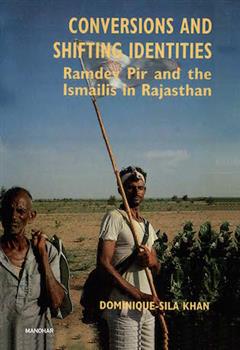RAJASTHAN
CONVERSIONS AND SHIFTING IDENTITIES: RAMDEV PIR AND THE ISMAILIS IN RAJASTHAN

Using a combination of ethnographic data based on the description of shrines and rituals and of popular literature, this book seeks to investigate Hindu 'folk' traditions in Rajasthan (especially cults associated with Ramdev, Jambha, Jasnath, Ai Mata), where the presence of Muslim elements is conspicuous. The author reaches the conclusion that the followers of these cults had originally been converted to Ismailism during the thirteenth and fourteenth centuries by missionaries acting under the direction of the central Ismaili dawa in the Multan region.
With the decline of that central authority from the fifteenth century onwards, such communities apparently broke away from the parent body and came under the control of various Pirs and gurus, whilst at the same time interacting with other religious groups such as the Nath Jogis and the Sants. Although they retain traces of their former Ismaili affiliation, these communities have in modern times come under increasing pressure to either adopt a more conventional Hindu identity or assimilate to Sunni or Twelver Shia Islam.
In short, the study opens up new research prospects which are likely to alter the general landscape of its major themes: Rajasthan, popular religion, Ismailism and beyond. About the Author Dominique-Sila Khan was an Associate Fellow of the Institute of Rajasthan Studies, Jaipur, and a member of the Société Asiatique, Paris. She received her Ph.D. in Anthropology in 1993 from the University of Paris. She has contributed research articles on the interaction between Hinduism and Islam to specialized journals and publications in India and abroad.
Some more books of similar interest